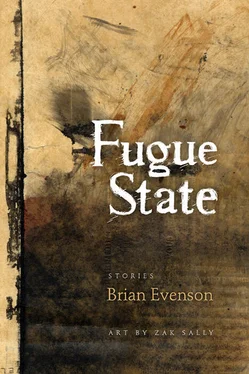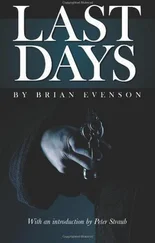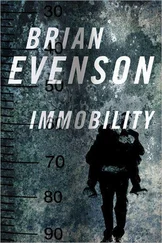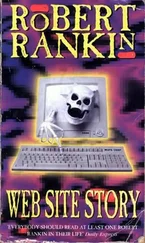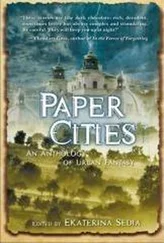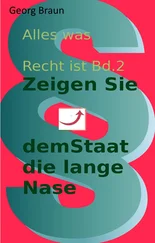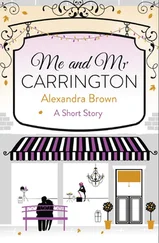I stayed as the light fell, and listened to him, watched the glints of his eyes, tried to read the dimming lines of his face. It would, he claimed, take only a day or so, a quick trip up into the mountains, and then we would come back down, our fortunes made. And what is it? I asked. But he merely shook his head. I would have to trust him, he said.
I shrugged. What, in fact, I wondered, did I have to lose? At the very least this was a distraction from my own life. And so I agreed.
He took me by the arm, began to tug me slowly off the road, into the slush and snow.
“Wait,” I said. “Let’s wait for the morning.”
But no, was I not the man after all? I had to trust him, we had to go now, there was not a moment to lose. And what, finally, did I care? Another day of shivering and cold? I would have it sooner or later, so why not sooner? So I allowed myself to be led off the road and away.
We trudged through the night, my hands gone blue with cold, my feet so numb I could hardly feel them. When he saw how I was suffering, he drew from around his shoulders an old blanket, which I wrapped around myself, and then felt at least slightly less cold.
We stopped near dawn and he cleared a spot of snow and ice and with a solitary match and pine needles started a small fire, slowly feeding it into a blaze. My feet, out of my wet shoes now, at first stayed numb and then felt as if they were being repeatedly stabbed. It was almost more than I could bear.
“Just a little more,” he said to himself. In the firelight I could see just how haggard his face really was. “Just a little more,” he said again.
And I looked at him and saw in his eyes a look closer to death than to mere exhaustion. A shadow had settled into his face and it lay there, just beneath the skin, blurring his features.
“Perhaps,” I said, “we should go back.”
He gave a little start, and then his eyes settled on me and he slowly smiled. “Just a little more,” he said again. “Just a little more.”
And so, just a little more. A slow tramp up into the mountains, the snow no longer slush but deep and powdery now, sticky, and the two of us tramping forward, he pushing a path through the snow and I following, the going slower as the sun slipped lower in the sky.
Until at last, past exhaustion, he seemed to glimpse what he was looking for, and we made for it.
It was a small miner’s shack. Inside, it was empty, not even wood for a fire. We were, both of us, too exhausted to trudge back out and go in search of dry timber, so instead we worked our way into a corner and huddled together, our bodies tight around each other, as the wind whistled around us.
I felt his face next to mine grow slowly cold, the heat draining out of him. And then I fell into a state between waking and sleeping and perhaps as well between death and life. In that state I saw myself again staring at her back, again afraid that she might turn around and reveal her face in a terrible way. But she did not turn around. It was as if she were frozen: she neither moved nor breathed. This made me even more afraid than if she were to turn around.
When the wind fell and morning light struck again, I opened my eyes to see my companion’s lips gone blue, his face turning blue as well. He could open his eyes and move them, but hardly more than that.
And now what? I asked him. He was in no condition to go on, I argued. Now that we were here, would he not tell me what it was we had come in search of?
He regarded me torpidly through half-closed eyes. Slowly his mouth opened itself, his lips pulling apart only reluctantly, as if his face were being slowly torn, but then, instead of speech, a dim, wracked sound issued from his throat, and he died.
There is, in every event, whether lived or told, always a hole or a gap, often more than one. If we allow ourselves to get caught in it, we find it opening onto a void that, once we have slipped into it, we can never escape. The void here — only one of several in what, from the wandering of love, my life had become — was this notion of some vague treasure awaiting me, something waiting to be taken, if only I could figure out what it was. I searched my companion’s pockets, my fingers trembling with cold, but found nothing to indicate what we had been looking for, nor anything to tell me who, exactly, my companion had been. I searched the shack itself, carefully, but found nothing to indicate the nature of what we had been searching for and no signs of a hiding place. I stripped him to see if he had any tattoos or hidden markings that might reconfigure my sense of the world, and found nothing. But rather than putting the clothes back on him, I put them on my own body, over my own clothing, so as to keep warm, so as to disguise myself.
Since I was in a miner’s shack, perhaps whatever it was I was meant to find was in the mine. But coming out of the shack, I could see no sign of a mine. I could, I thought, search until I found something, but I had no food, did not know what I was looking for. This was, I convinced myself, the hole that was opening into a void for me: a desire for some unknown riches, which I might not even recognize were I to see them, was coaxing me forward and into my own oblivion, offering to make me not rich but dead.
And it was with this realization that her face sprang up before me at last. In my head I saw her turn away from the creek and turn toward me and smile — her stark blue eyes, her high cheekbones, her beautiful, full lips, her slightly skewed teeth: I could piece together little of her beyond that — whole regions of her face and head remaining unrendered and incomplete — but it was enough to fill me with a desire to see her again, a desire that pulled me out of the void and saved my life.
I kept her image before me as I moved back down the mountain again, along the trail we had blazed through the snow during our ascent. The journey seemed quicker this time, the crust of the snow already broken, the path already there to follow, the downward slope urging me quickly forward. I kept putting one foot in front of the other, not stopping even after darkness fell. I kept plodding down, hardly conscious of anything around me until, unsure of how many hours I had traveled, how many steps I had taken, I found myself at last on the road.
What immediately followed I have assembled after the fact and by inference. The few bits and pieces that I do remember feel less lived than observed from a distance. I was found delirious and shivering and nearly dead, by some car that had stopped. I was taken to what seemed at first to me an asylum but which I have allowed myself over time to be convinced was a hospital. There, doctors in pale-blue coats lopped off the toes on one foot and removed most of the other foot. A few fingers were cut free as well, while a few others still continued to itch and buzz with pain. I was asked who I was, without result: in my addled state I hardly knew the answer myself at first and then I chose to keep to myself the answers slowly coming to me. Eventually they stopped asking.
All the while I kept her image before me: the movement of her lips as she asked me, Do you love me? and myself still unsure how or if I had responded, but knowing that now I would answer, Yes. And when, finally, I was coherent again, I lay in bed with my bandaged hands and stared at the ceiling and plotted how I would make my way back to her.
And then one day, abruptly and without warning, I simply climbed out of bed, slipped into my clothes, and left. I walked out the front door of the hospital and climbed into the first likely car I saw and not without difficulty hot-wired it and then, gripping the steering wheel with my bandaged hands, drove away. I could imagine her there, still by the creek, still waiting for me. I imagined how she would turn and face me and smile. Where have you been? I imagined her asking, and imagined myself shrugging and responding, Nowhere, though there was no place in my imagining for how her face might change once she saw my mangled hands and feet.
Читать дальше
